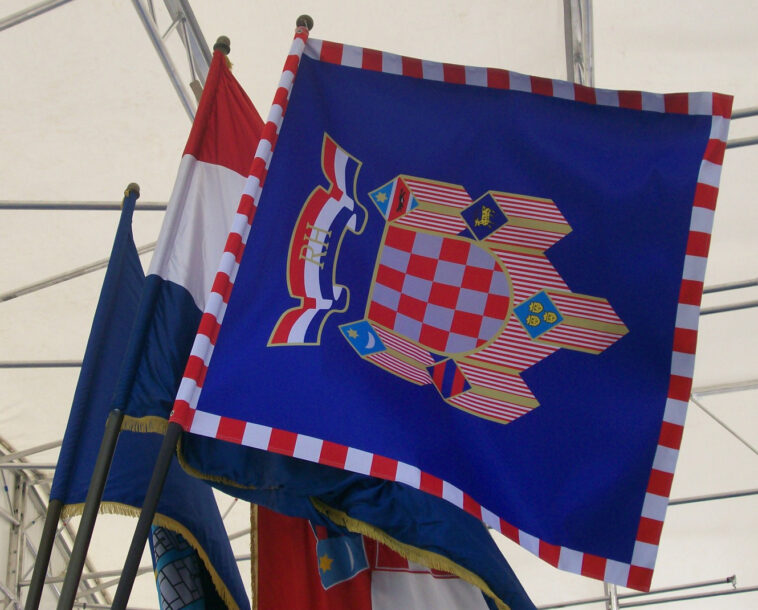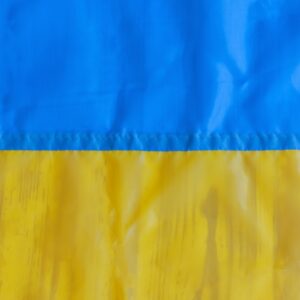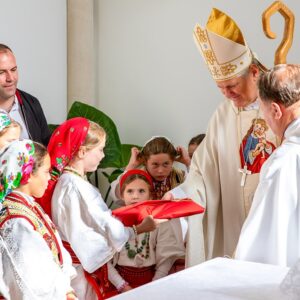After almost three months I am back on the blogging trail. Thank you to all of you who have kept in touch during that time either by liking my articles, commenting, or sending me an email.
I have just returned To Australia from a 10-week visit to Croatia and, being interested in changes that would signify a solid progress out of the former communist regime, October was no month to enjoy Croatia. It’s the month leading up to imminent Presidential elections and dirt flung around against candidates, instead of focusing on issues affecting people’s lives, got suffocating for me. So, I cut my visit short by two-and-a-half weeks.
If you thought that when it comes to turmoil, the 2024 U.S. presidential election has few rivals you were wrong. The turmoil intensifies exponentially in a small country of 3.8 million people like Croatia. Endless streams of political debates, discussions, interviews flooding TV and computer screens. Spirited social media sparring between friends, acquaintances, strangers and families over candidates and key issues end up in quarrels and even estrangement.
The race, which will culminate in a new president-elect during or after December, depending on the date in the month the elections will be called, has for months been steeped in drama, surprising turnabouts, arrests for corruption, personal insults. Left leaning, biased, mainstream media influence on politics has played a critical role in shaping public perception, adding layers of intimidation for freedom of choice and public right to know about all candidates as well as complexity to issues like misinformation, polarisation, and violent rhetoric. The usually odious antagonistic and insulting rhetoric between Prime Minister Andrej Plenkovic and President Zoran Milanovic has become violent especially against the backdrop of international strife such as the war in Ukraine and the Middle East.
The long-standing conflict between Prime Minister Plenkovic and President Milanovic flared up with vicious intensity again during the first half of October because the President did not approve the presence of Croatian soldiers at a NATO military exercise. President’s refusal to permit Croatian soldiers participating in this exercise has sparked talks about the decision being sent for a vote by the Croatian Parliament. Croatia is one of only two of NATO’s 32 member countries not to participate in the alliance’s latest operation to help train Ukrainian soldiers in Germany, because President Milanovic fears such a move could push Croatia into a war. Croatian soldiers were supposed to go to a NATO exercise in Germany, where they would work as instructors for Ukrainian soldiers as part of the alliance’s Security Assistance and Training for Ukraine, NSATU, project.
But Zoran Milanovic, Croatia’s President and Commander-in-Chief, opted to swerve the operation, with the country joining Hungary as the only two NATO members not taking part. Milanovic said recently to the media that he will not allow direct staff support to a warring party (Ukraine) that is not a member of NATO. Croatia has an obligation only to help its allies, which he said it regularly does. “Everything else is joining the war, which I did not and will not allow. I answer exclusively to the Croatian people, not to Washington and Brussels – it will remain so,” said Milanovic.
“We call on members of Parliament not to agree to follow a policy that is contrary to Croatian interests, to act as if we do not see Russian aggression against Ukraine,” Prime Minister Plenkovic said early October. “Let’s show solidarity including military support for Ukraine. As the government, we express our great dissatisfaction and call on the members of parliament not to bury their heads in the sand of Milanovic’s presidential campaign”. Plenkovic said that Milanovic refused to give his consent for political reasons, knowing that Ukrainian President Volodymyr Zelenskiy is coming soon to a summit between countries in Southeast Europe and Ukraine, to be held in Dubrovnik.” (Zelensky got what he came for at the Dubrovnik Summit on 9 October 2024 to which President Milanovic was not invited even though the host was Croatia’s Prime Minister Plenkovic. Zelenskiy received a strong gesture of political support for Ukraine in its fight against the occupying Russian forces. But given the turmoil and confusion regarding sending Croatian soldiers to Germany to train Ukranian ones the geopolitical stakes of this support affirmed in Dubrovnik were lost on the locals as well as wider Croatian public. Taking sides has become on this appeared to become exclusively political party faithful’s issue rather than the one of Croatian national interests.)
The decision regarding this matter, which has created a great deal of public confusion and turmoil, is now being entirely left to two-thirds of parliamentary members’ vote. It is anticipated that the Croatian Parliament will be voting on this issue during or around the last week of October 2024.
It goes without saying that journalists and media shape election coverage by deciding which candidates to cover and how to cover them, often focusing on the two leading candidates in a horse race: who’s winning vs. who’s losing. Journalists in the environment such as the one where the political powers control the media, such as is the case for Croatia, have become too fixated on the contest and the game as opposed to understanding the broader array of issues that are not just about who’s winning or losing, but rather what people actually care about.
The stakes refer to the impact on Croatian democracy and what might happen as a result of the election. Will Croatia become more democratic with greater rule of law (as currently this has been struggling at pathetic low levels) and less corruption (Croatia as a country can currently be defined by corruption and the incessant arrests of public or company officials on allegations of theft, fraud or corruption) different if Person A is elected versus Person B, would be the question in most voters’ minds but not the question deemed important for the controlled mainstream media. Ultimately, that question is more important than who happens to be ahead by two or three points in a given political poll. And Croatia loves its polls it seems. The only problem is that these cannot be fully trusted because polls do not include all known candidates. Polls ignore candidates in Croatia, particularly the ones to the right wing or patriotic political pursuits. This of course, if anything, is a showcase of badly run democracy,
The campaign for the head of state is unstoppably turning into a parody.
Dragan Primorac (ruling HDZ party candidate) claims that global and regional forces of evil have conspired against him, in a hellish conspiracy that has only one goal – to obstruct his campaign! According to Primorac, Russian hackers, Milanovic’s American advisers, as well as the Serbian BIA, responsible for financing the action, also participate in the large international conspiracy. Zdravko Mamic paid for a similar trolling operation in favour of HDZ and former President Kolinda Grabar Kitarovic. “It’s a geopolitical match,” claims a source close to Primorac.
The President of the Republic, Zoran Milanovic, should win the presidential elections, at least judging by the current HRT polls. Namely, if the elections were held this week, 36.5 percent of respondents would vote for him, and 23.9 percent would vote for HDZ’s candidate Dragan Primorc.
Marija Selak Raspudic, an independent member of parliament, is in third place with the support of 9.4 percent of respondents, and the candidate of the platform Mozemo! Ivana Kekin is fourth with a current rating of 7.1 percent. If the presidential elections had been held a few days ago, none of the other presidential candidates would have achieved a result worth mentioning.
According to HRejting, Domino party candidate Branka Lozo would get 3.1 percent of the vote, Miro Bulj (Most) 2.9 percent, Mislav Kolakusic (Law and Justice) 1.6 percent, and independent candidate Tomislav Jonjic 1.4 percent of the vote. Other (potential) candidates have a rating of less than 1 percent, with 12.1 percent of undecided voters
In the second election round, the current president of the country and Dragan Primorac would face each other, and Zoran Milanovic would win with 52.6 percent of the votes.
33.9 percent of respondents would choose HDZ’s candidate, 7.4 percent are undecided, and as many as 6.1 percent of respondents claim that they would not vote in the second round if the choice came down to Milanovic and/or Primorac.
However, this picture is likely to change as new candidates for the President of Croatia seem to be popping up like mushrooms after the rain. Seems, almost everybody in Croatia believes they can be the best President just as they did a few months ago for the role of Prime Minister at Parliamentary Elections.
The bottom line of my disappointment with the Presidential race in Croatia that is currently afoot is that election programs and issues that affect people’s lives are not really participating in the race but rather who is liked as a person and who is not by people. And the feeling is – emotions towards and affiliation to a candidate are very numerous and what “the cat” will pull out of the bag on polling day in anyone’s guess. Ina Vukic




